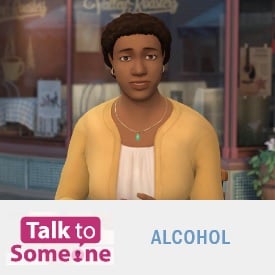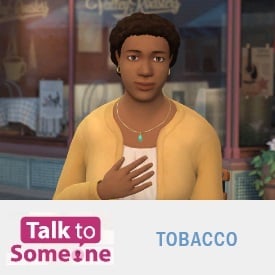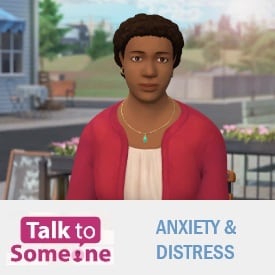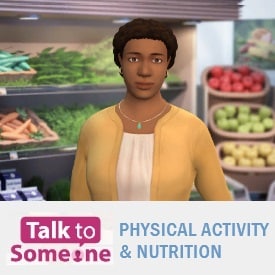“Talk to Someone” Simulation
Staying healthy after cancer treatment can be challenging. Linda, a cancer survivor, gives advice on four different topics. You can choose different options to get answers to your questions about making healthy choices.
Best viewed in Google Chrome or Microsoft Edge browsers.




